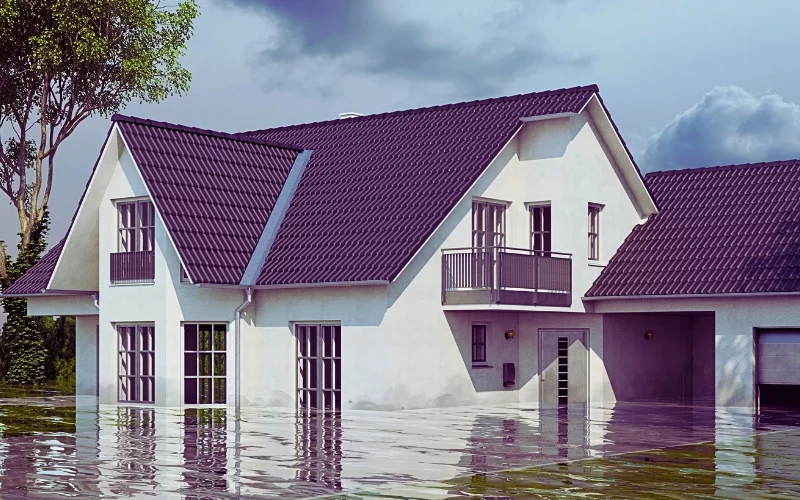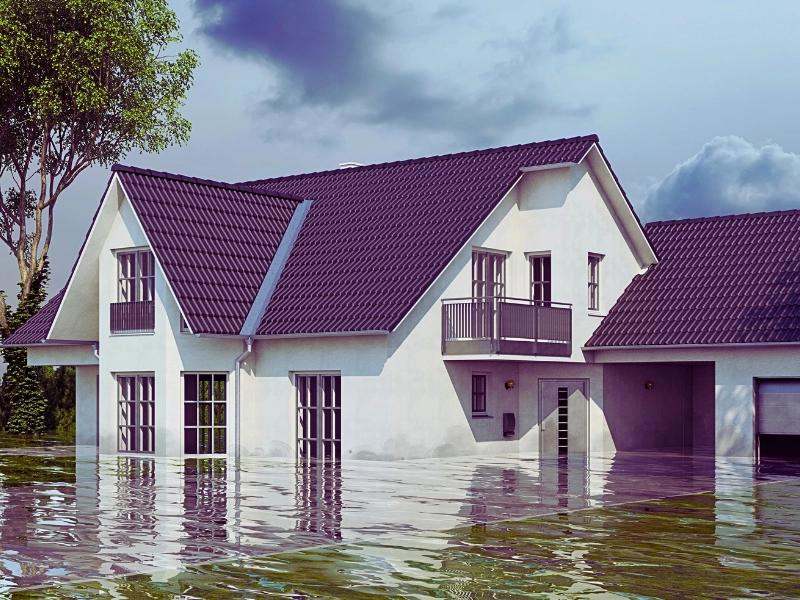🌧️ Property Damage in Spring Storms: Navigating Insurance Claims
10Apr
April showers may bring May flowers—but they can also bring serious property damage. Spring storms are no joke. Between high winds, heavy rains, hail, and even the occasional tornado, homeowners often find themselves facing damage to roofs, fences, landscaping, siding, windows, and outdoor structures.

While you may assume your homeowner’s insurance has you covered, navigating a property damage claim isn’t always as straightforward as it should be. Insurance companies often look for ways to minimize payouts or delay the process—leaving you stressed, frustrated, and still dealing with the damage.
Here’s what you need to know to protect yourself and your property this spring.
🏚️ Common Spring Storm Damage
Depending on where you live, spring storms can cause a wide range of damage, including:
- Roof leaks or missing shingles
- Downed trees and branches
- Flooded basements or crawlspaces
- Broken windows
- Damaged fences or patios
- Siding blown off or cracked
- Destroyed garden sheds or detached structures
- Ruined landscaping and outdoor furniture
These may seem like routine weather-related losses, but that doesn’t mean your insurance company will automatically make it easy.
📝 Tips for Filing a Strong Property Insurance Claim
If your home or yard has been damaged by a spring storm, follow these steps to strengthen your insurance claim:
- Document Everything Immediately
Take detailed photos and videos of all damage before making any temporary repairs. - Prevent Further Damage
Cover exposed areas with tarps, board up broken windows, or remove fallen trees if it’s safe to do so. Your policy likely requires you to mitigate further loss. - Save Your Receipts
Keep records of any out-of-pocket expenses related to emergency repairs or temporary housing. - Review Your Policy
Know what’s covered—and what might not be. Some policies exclude flood damage unless you’ve purchased a separate rider. - File Promptly, But Carefully
Most policies require you to file claims within a specific time frame. But don’t rush through the details—mistakes or missing information could hurt your claim.
⚠️ Watch Out for These Common Insurance Company Tactics
Unfortunately, many insurers prioritize their bottom line over your best interest. Be on the lookout for:
- Lowball settlement offers that don’t reflect the full cost of repairs
- Delays in communication or processing your claim
- Requests for excessive documentation that create unnecessary hoops
- Denials based on technicalities (e.g., saying damage was “pre-existing” or “maintenance-related”)
- Pushing you to use their “preferred” contractors, who may not have your best interests at heart
If something feels off—or if your claim is denied or undervalued—it’s time to speak to an experienced property insurance attorney.
🧑⚖️ How an Attorney Can Help
An attorney who understands property damage claims can:
- Review your policy to identify coverage and exclusions
- Communicate with the insurer on your behalf
- Dispute unfair denials or low offers
- Work with contractors and adjusters to get accurate repair estimates
- File a bad faith insurance claim if your insurer is acting dishonestly
You pay premiums to be protected. You shouldn’t have to fight to get what you’re owed when a storm hits.
⛈️ Don’t Let a Spring Storm Become a Financial Disaster
If your home has suffered storm damage this spring and you’re struggling with the insurance process, you’re not alone—and you don’t have to deal with it alone either. We help homeowners navigate complex claims and hold insurers accountable.
Schedule a free consultation today and let’s make sure your home—and your peace of mind—is fully restored.
